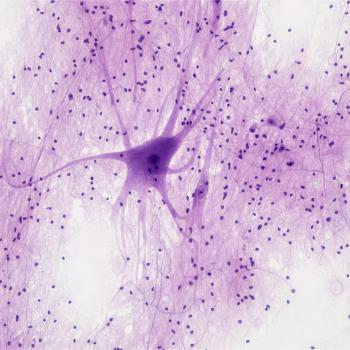Over the last twenty years, Time magazine has had three cover stories on the pursuit of happiness. In each of these editions they were not examining how happy we have become, but commenting on the rise of unhappiness and discontentment among us.
In one of the older but still relevant articles, Geoffrey Cowley quoted psychologist David Myers who says, “In America, real income has doubled since 1960. We are twice as likely to own cars, air conditioners, and clothes dryers, twice as likely to eat out on any given night. Yet our divorce rate has doubled, teen suicide has tripled, and depression has increased ten-fold.”
What has happened? There seems to be a number of factors that contribute to our unhappiness but there is also an unspoken reason which people do not want to talk about.
I recently read some interesting words on this from Ernest Becker, who was the author of the Pulitzer Prize winning book, The Denial of Death. Becker was not a Christian but he understood that what makes us different from all other organisms is that we want eternity out of time.
He says we want to know that our lives count, but in order for anything to have meaning to a human being, the effects of our lives must remain alive in eternity in some way.
Becker is not a theist. He says look at the human life. Why are human beings afraid of death? What we want is to believe we will last. Human beings want meaning in life, but believing that when we die everything perishes destroys our happiness. We can’t actually believe life has meaning if we believe once we die, no matter how we live, everything is going to end.
Becker realizes that we have this yearning for permanence, but he did not know where it came from. He never asks “What is the origin of this desire?”
Solomon provides the answer in Ecclesiastes 3:11 when he says that God has put eternity in man’s heart. We naturally desire permanence because we are made in the image of God and God is an eternal being.
The great philosopher and mathematician Blaise Pascal also saw great unhappiness and discontentment in people’s lives, along the same lines of Becker’s reasoning. He says,
“There is a clear reason for our unhappiness. It is because of our mortal condition. Death is the most obvious fact of life. It slaps us in the face when we realize our own helplessness in overcoming it. Deep down we are haunted by the notion that, when we die, we experience the loss of everything in life.”
I recently taught a study from Philippians 4:11,12 where the Apostle Paul speaks of “learning the secret of being content.” To be content means to have a deep calm and peace in your life. You cannot be content if you are unsettled over death and dying. Paul had learned, “For me to live is to live my life for Christ, to die is to gain.” (Philippians 1:21) He later says to die and be with Christ is far better than living in this broken world we live in. (Philippians 1:23)
In Hebrews 2:15 we are told that one of the reasons Christ came into the world was to deliver us from the fear of death. If we do not look to Christ to do this, we are told we will be slaves to the fear of death all of our lives. It is this fear that robs us of the joy and happiness in this life.
A final reason the fear of death can be so daunting is because it is such a solitary experience. It is crucial to have someone walk through it with us. This is what God offers us in the 23rd Psalm. We are promised that God, our heavenly Father will walk with us through the valley of the shadow of death. We have nothing to fear.
I am not sure what people think about their own impending death, because we never really talk about it. However, think about how different a person’s life would be if he or she were completely delivered from the fear of death. More significantly, what if we saw death as Paul did, that it is far better than the earthly life we are now experiencing.
I am convinced that if this is the way we see the future, it will radically change the life we are living today.
Richard E Simmons III is the founder and Executive Director of The Center for Executive Leadership and a best-selling author.













